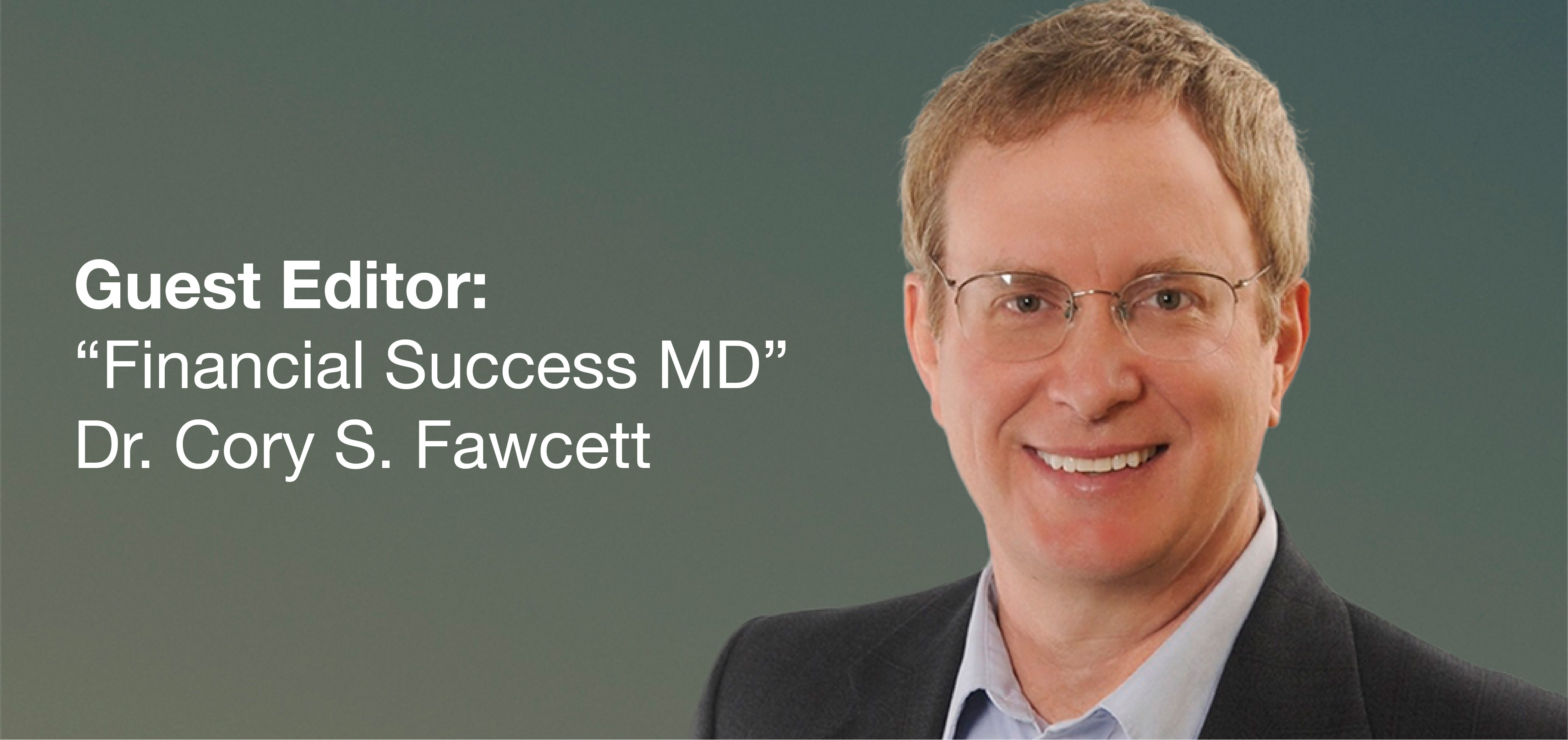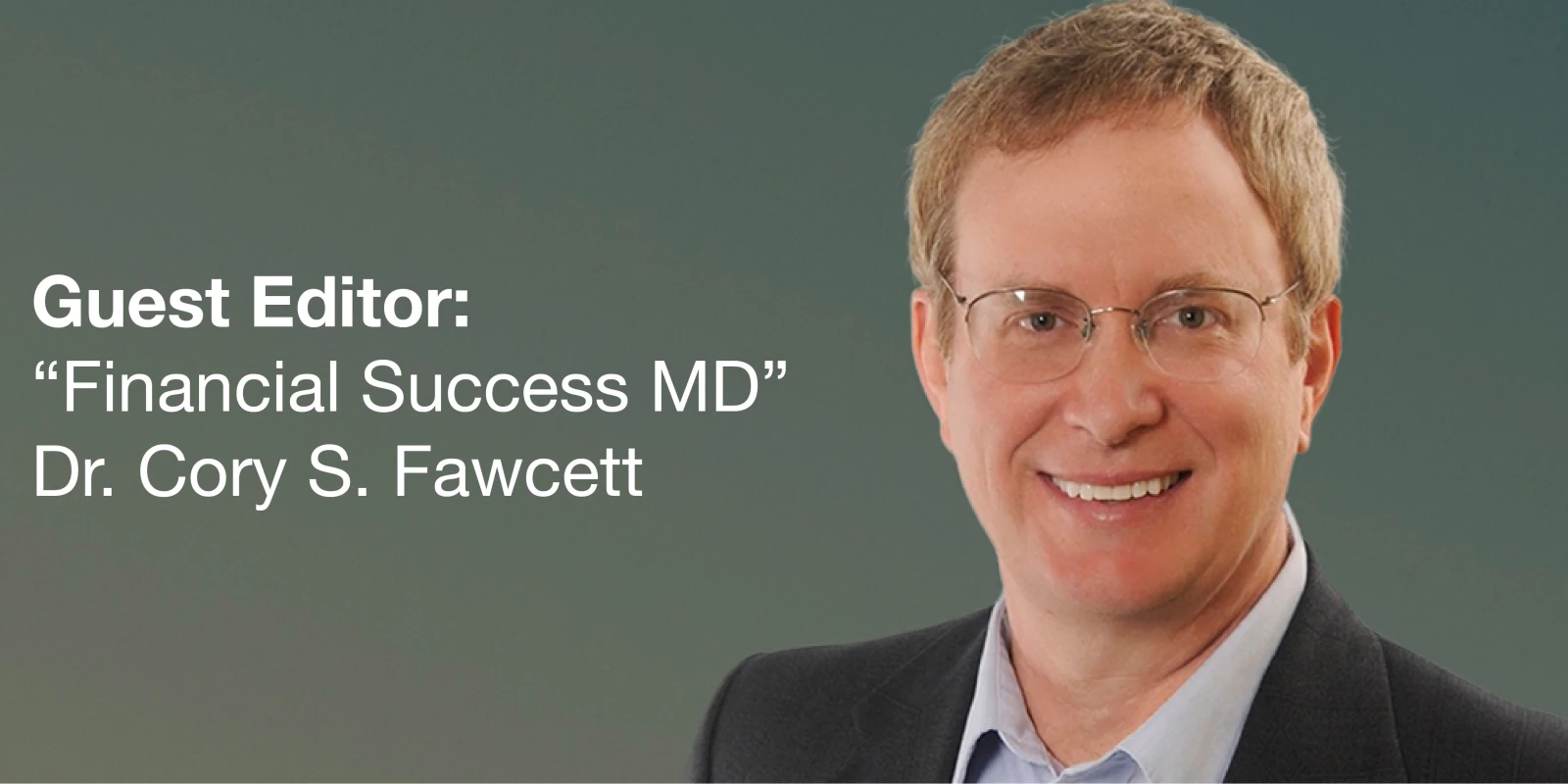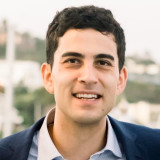
After retiring from medicine at age 50, Dr. Cory S. Fawcett was purposeful in finding his next passion.
“I didn’t want to quit surgery 100% and go to playing golf four times a week,” he said. “I explored for a couple of years: What could I do in my retirement years that would make me feel useful? I settled on writing books and teaching doctors about personal finance.”
Dr. Fawcett jumped wholeheartedly into this new career, authoring the popular Financial Success MD blog and four books in a personal finance series. But it’s his fifth book that may be the most timely yet, thanks to a pre-sunup to post-sundown writing schedule.
“I actually had another book ready to publish when the [COVID-19] lockdown started, and it was clear that the timing was wrong to release that book,” he said. “I had people asking me what to do during their own crisis, and I was looking for a book [for them]. I only found books that teach what to do ahead of time to get ready for a future crisis, [but] nothing to help people in the midst of a financial crisis. So I decided to write one.”
The resulting book, “The Doctor’s Guide to Navigating a Financial Crisis”, will be released June 16. In it, Dr. Fawcett teaches doctors how to find their footing and, over time, return to normalcy amidst a financial crisis. He hopes the book will become the go-to read for doctors in this position.
Already though, Dr. Fawcett’s writing career has provided him a sense of fulfillment that golf alone could not. Two moments in particular stand out.
“The first [moment] is when my first book won nonfiction book of the year at the Idaho Author Awards,” he said. “It was a very proud moment that someone thought my writing was that worthy.
“The other moment is every time I get an email, ‘I read your book and it changed my life,’ or ‘It saved my marriage.’ To realize that without me ever knowing or meeting these people, my work changed their lives.
“You can’t do that as a surgeon. I had to be there one-on-one and touch you, take out your appendix. But with writing, hundreds of people a day I never met can become impacted.”
Having built a loyal following in the field, Dr. Fawcett notes two areas in which his approach may differ from other advisors’. First, he advises sticking to bread-and-butter investment vehicles and strategies, and avoiding esoteric options such as bitcoin, gold, or day-trading. Second, he advocates avoiding personal debt — even going so far as to prioritize paying off a low-interest mortgage instead of investing in the market.
The counterargument is that mortgage rates are at historic lows, stocks should be relatively cheap in a downturn, and, for clinicians not within a few years of retirement, optimizing for the long-term would call for investing in the market, rather than making extra mortgage payments. Dr. Fawcett takes an alternate perspective.
“How would your month look if you didn’t have the [mortgage] payment to make and still had the house?” he asked. “You can invest all you want, but you still have to make the payment each month. The math says you can make 8% if [you invest], so why would you pay it off? The ‘why’ is how your life would look without loan payments.”
Many may still disagree with Dr. Fawcett’s advice. But did it cause you to re-evaluate your personal finance choices? If so, perhaps that’s the point.
"Millions of people are in trouble right now,” he said. “When this crisis ends, there will always be others. ... I'm hoping my book will become the go-to book for people who are facing a personal financial crisis."
As a Doximity Fellow this past year, Dr. Fawcett wrote about both personal finance and his own career path. You can read his articles about curbing consumerism, investment real estate, financial advisors’ conflicts of interest, finding a dream job, and providing charity care. If you’d like to write on the Doximity network too, apply by June 1 to be in the upcoming class of Doximity Fellows.







